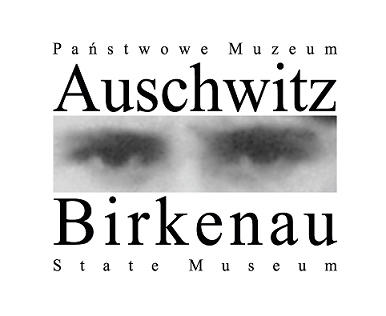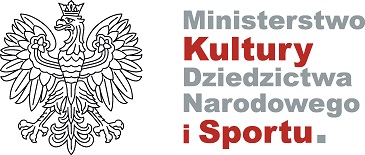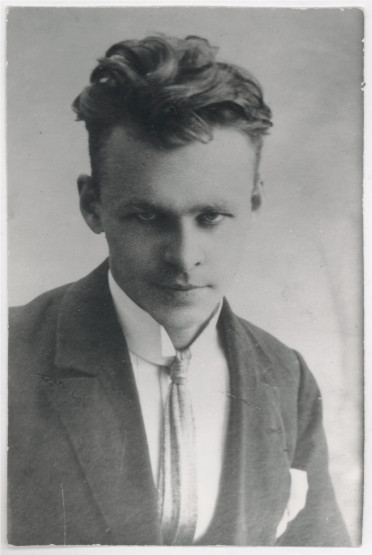The Witold Pilecki International Book Award. The first edition (2021) - Instytut Pileckiego
books
12.05.2021 (Wed) 18:00
The Witold Pilecki International Book Award. The first edition (2021)
In 2021, to celebrate the 120th anniversary of the birth of Witold Pilecki, we are launching the first edition of the Witold Pilecki International Book Award. Deadline for submitting applications: 30 June 2021.
The prize will be awarded to authors of the best academic and journalistic Polish- or English-language books published in the previous year and devoted to the Polish experience of two totalitarianisms. A special prize will be awarded for a book concerning ongoing military conflicts and places where human dignity is particularly endangered.
THE IDEA
As a soldier, resistance fighter, true hero and a man of action, Witold Pilecki may not seem like an obvious choice for a patron of a literary prize. His famous reports, however, are more than a source of invaluable information on the functioning of Auschwitz-Birkenau: through his expressive style, Pilecki also offers an in-depth analysis of the situation in the camp and a broader humanist perspective. While providing information about specific events – the atrocities committed by the Germans in occupied Poland during World War II – the reports also serve as a testimony to the whole era.
By awarding the Witold Pilecki International Book Award we aim to recognize the significance of the universal message stemming from the experience of the 20th-century totalitarianisms. We wish to acknowledge texts which promote the fundamental values of human dignity, striving for the truth, willingness to sacrifice, and solidarity with the persecuted. The special prize awarded to war correspondents will highlight the present and future value of their work.
We honor original academic works and excellent reportages. We wish to celebrate books which explore the subject extensively, bringing it to wide audiences.
The prize will be awarded internationally. Eligible for nomination in each category are books written in Polish or English and published in the previous year.
THE PARTNER
The partner of the award is the Auschwitz-Birkenau State Museum in Oświęcim.

CATEGORIES
- Academic history book – the best monograph or synthesis concerning the Polish experience of the confrontation with two 20th-century totalitarian regimes. The prize will be awarded to well-researched books comprising an original interpretation and written in an appealing way.
- Historical reportage – a captivating depiction of the Polish experience of two 20th-century totalitarianisms. In addition to classic historical reportages, entries in this category may include biographies, collections of accounts, memoirs and correspondence of witnesses to history. The prize will be awarded for respectful approach to historical sources, well-organized composition and unbiased narrative.
- The special prize for war correspondents – awarded for books which provide reliable information concerning ongoing military conflicts or places where human dignity is particularly endangered. In the face of the current crisis of traditional media, we support authors who take risks to disseminate knowledge, appeal to a conscience, and issue warnings for the future. The prize will be awarded for investigative intuition, determination in uncovering the truth and a broad perspective.
ENTRIES
Entries for the Competition may be submitted by authors, publishers, private persons/natural persons, legal persons, or organizational entities devoid of legal personality, this by sending the electronic edition of a book (in PDF format) to the e-mail address: award@instytutpileckiego.pl, or three hard copies thereof to the address: Instytut Pileckiego, ul. Sienna 82, 00-815 Warszawa, with the annotation “Pilecki Book Award".
Please indicate the category of the submission.
Deadline for submitting applications: 13 June 2021.
Download the detailed regulations of the competition and information clause on personal data processing (attachments below).
THE JURY
Prof. Richard Butterwick-Pawlikowski – historian specializing in the history of the Polish–Lithuanian Commonwealth. Lecturer at University College London and visiting professor at Natolin European Centre. Author of, i.a., The Polish-Lithuanian Commonwealth, 1733–1795: Light and Flame (2021) and The Polish Revolution and the Catholic Church, 1788-1792: A Political History (2012).
Prof. Marek Cichocki – political scientist and philosopher, expert on Polish-German relations and European integration. Lecturer at Collegium Civitas. Author of, i.a., Północ i Południe. Teksty o polskiej kulturze i historii (2018) and Problem politycznej jedności w Europie (2012). Winner of, i.a., the Józef Mackiewicz Literary Award.
Dr. Piotr Cywiński – historian, director of the Auschwitz-Birkenau State Museum and chairman of the Program Board of the Emanuel Ringelblum Jewish Historical Institute. Author of, i.a., Rampa w pamięci Żydów deportowanych do Auschwitz (2016) and Marsz śmierci w pamięci ewakuowanych więźniów Auschwitz (2016).
Jack Fairweather – journalist, writer and war correspondent. Author of, i.a., The Volunteer: The True Story of the Resistance Hero Who Infiltrated Auschwitz (2019) and The Good War: Why We Couldn’t Win the War or the Peace in Afghanistan (2014). Winner of the Costa Book of the Year Award.
Prof. Patrycja Grzebyk – lawyer and political scientist specializing in international criminal law. Lecturer at the University of Warsaw. Author of, i.a., Cele osobowe i rzeczowe w konfliktach zbrojnych w świetle prawa międzynarodowego (2018) and Criminal Responsibility for the Crime of Aggression (2013). Winner of the Manfred Lachs Award for the best monograph on international law.
Prof. Marek Kornat – researcher specializing in the Polish political thought of the 19th and 20th centuries, Sovietologist. Head of the Section for the History of Diplomacy and Totalitarian Systems at the Polish Academy of Sciences and lecturer at Cardinal Stefan Wyszyński University. Author of, i.a., Niższość cywilizacyjna wrogiego narodu. Niemieckie dyskursy o Polsce i Polakach 1919–1945 (2020) and Józef Beck. Biografia (2020, co-written with M. Wołos). Winner of, i.a., the Jerzy Giedroyć Award.
Krzysztof Kosior – representative of the patron’s family, great-grandson of Witold Pilecki.
Dr. Wojciech Stanisławski – historian, expert on the history of the Soviet Union, Central Europe and Western Balkans. His articles were published in, i.a., “Aspen Review”, “Nowa Europa Wschodnia”, “Nowe Książki” and “Rzeczpospolita”.
Prof. Claudia Weber – historian. Lecturer at the European University Viadrina Frankfurt (Oder). Author of, i.a., Der Pakt. Stalin, Hitler und die Geschichte einer mörderischen Allianz 1939–1941 (2019) and Krieg der Täter. Die Massenerschießungen von Katyń (2015).
In each category, 5 entries will be shortlisted by the jury who will subsequently choose the winners.
THE WINNERS
The authors of the best books in each category will receive PLN 75,000 (ca. EUR 17,000) and a commemorative statuette, which will be awarded during a formal gala in November 2021.
The Witold Pilecki International Book Award is co-financed by the Ministry of Culture, National Heritage and Sport.

THE PATRON

Witold Pilecki was born in 1901. Before the war, he managed his family estate in Poland’s Eastern Borderlands. When the Second Polish Republic collapsed, he immediately joined the underground resistance. He was deported to the Auschwitz concentration camp in 1940 of his own accord and with the consent of his commanders. He stayed there for over two and a half years, organizing a secret network and sending reports on conditions and the situation in the camp as well as the annihilation of Jews to the Polish underground.
After his daring escape from Auschwitz, Pilecki worked for the Home Army’s Directorate for Sabotage and Subversion (Kedyw). In 1944, he took part in the Warsaw Uprising, and was captured and deported to Germany upon its defeat. He returned to Poland, now controlled by the communists, in 1945 as an emissary of General Władysław Anders, tasked with setting up an intelligence network. Arrested in 1947 by the Security Office, he was brutally tortured during interrogations and sentenced to death in a show trial. The sentence was carried out on 25 May 1948.
Cavalry captain Witold Pilecki challenged two totalitarianisms: the Nazism and Communism. He was a victim of both these criminal regimes. He is a paragon of patriotism, courage, love of freedom, and solidarity with the persecuted.
By courtesy of the family of Witold Pilecki – Zofia Pilecka-Optułowicz, Andrzej Pilecki and professor Edward Radwański and his wife – Pilecki Institute has a honor of being named after him.
See also
- Oppositional Engagement of Women in Authoritarian and Totalitarian Systems of the 20th Century: Poland in a Comparative European Perspective (1919–1989)
conference
Oppositional Engagement of Women in Authoritarian and Totalitarian Systems of the 20th Century: Poland in a Comparative European Perspective (1919–1989)
We invite scholars to participate in an international academic conference devoted to various forms of activity undertaken by women who engaged in opposition and dissent under authoritarian and totalitarian rule in the 20th century.
- CALL FOR PAPERS: Oppositional Engagement of Women in Authoritarian and Totalitarian Systems of the 20th Century: Poland in a Comparative European Perspective (1919–1989)
conference
CALL FOR PAPERS: Oppositional Engagement of Women in Authoritarian and Totalitarian Systems of the 20th Century: Poland in a Comparative European Perspective (1919–1989)
We invite scholars to participate in an international academic conference devoted to various forms of activity undertaken by women who engaged in opposition and dissent under authoritarian and totalitarian rule in the 20th century.
- Pilecki Institute International Teachers and Educators Program 5th edition. Post-war decade. | Call for participants
project
Pilecki Institute International Teachers and Educators Program 5th edition. Post-war decade. | Call for participants